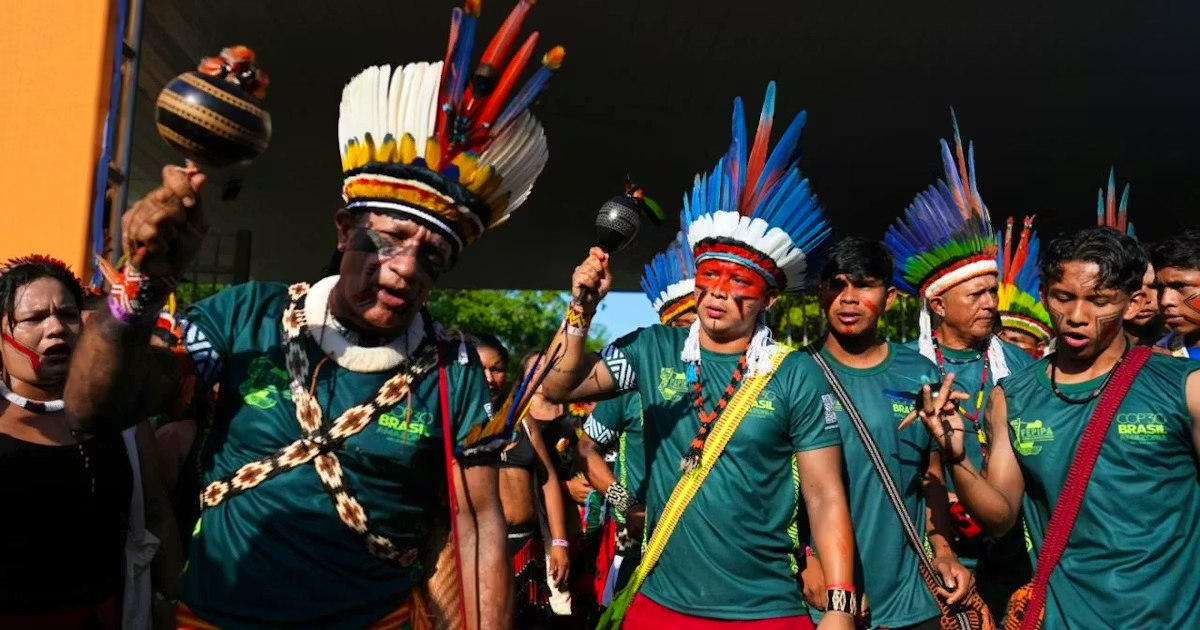Politics: After protests: Brazil announces ten new indigenous territories | blue News

Indigenous people demonstrate during a climate protest at the UN Climate Summit COP30. Photo: Andre Penner/AP/dpa
Keystone
Following protests by indigenous activists at the World Climate Conference in Belém, Brazil’s government has announced the designation of ten new indigenous territories. “The message we want to send to the world is that there can be no fight against the climate emergency without consideration and respect for the guardians of the planet,” said Sonia Guajajara, Brazil’s Minister for Indigenous Peoples, at the signing of the corresponding decrees.
The measure represents an important step in the process of demarcating indigenous territories. The decrees are official acts of institutional recognition of the right to indigenous territories and the definition of their boundaries. However, the final decision rests with President Luiz Inácio Lula da Silva, who must officially confirm the territories by decree.
Thousands of indigenous people protest at the climate summit
The decrees come just a few days after thousands of indigenous people and international climate activists protested for climate justice and the protection of indigenous territories at the UN Climate Change Conference at the weekend. Indigenous activists had previously blocked the main entrance to the conference for hours, and there was a storm in the entrance hall of what should have been a heavily secured tent city.
The government had already recognized the permanent indigenous occupation of eleven territories last year. No steps of this kind had been taken since 2018 – under the government of former President Jair Bolsonaro.
Land conflicts and violence
There have been unresolved land conflicts between indigenous peoples and large landowners or settlers in Brazil for decades, which have repeatedly escalated into violence and deaths.
Concrete steps to combat global warming are currently being negotiated at the COP30 world climate conference. Indigenous people are seen as key in the fight against climate change. According to studies, less forest is cut down in regions where they have vested land rights than elsewhere.




